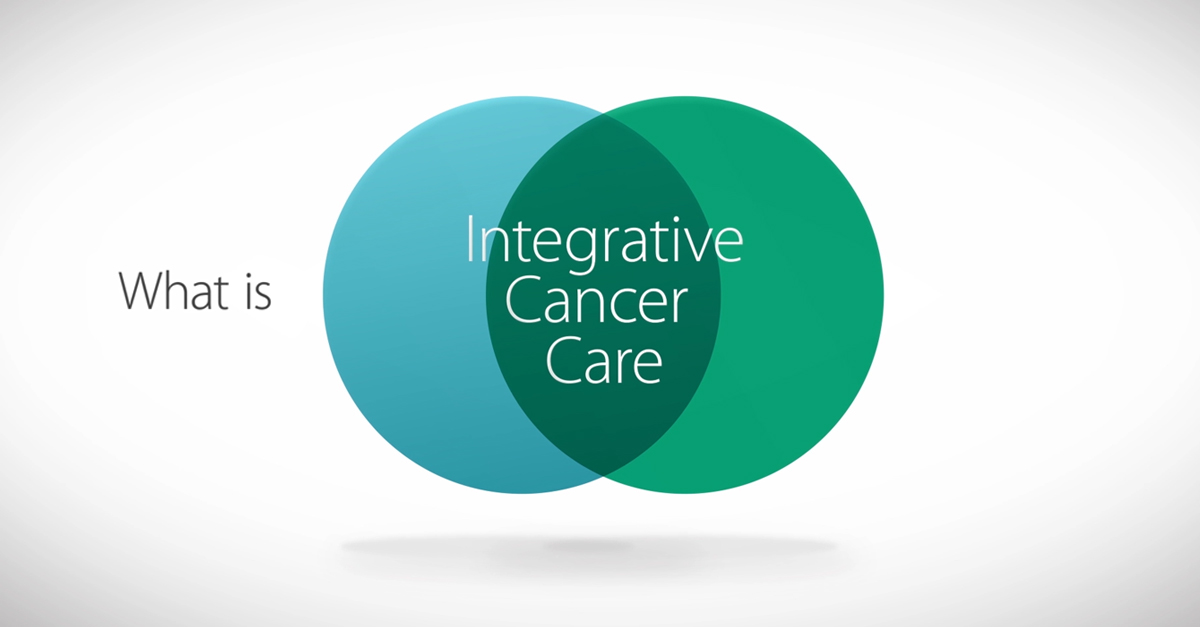
When you’ve been diagnosed with cancer, it’s natural to feel as if you have little control over your health, and many patients are willing to try anything to rid their body of cancer. The Internet is filled with information suggesting ways to help, much of which includes false advertising and unproven natural remedies—so-called “treatments” that range from vitamins to juice. At best, these approaches do nothing to treat the cancer; at worst, they may have dangerous, unintended consequences.
“ We often end up educating our patients about fact versus fiction. We work hard to explain that certain therapies are not equivalent to conventional treatments when it comes to treating cancer.” - Daniel Kellman, ND, FABNO - Director of Naturopathic Medicine and Rehabilitation Services at our hospital near Atlanta
What would happen if I used natural therapies instead of recommended treatments?
Patients who chose these types of so-called natural therapies to treat early-stage cancer, instead of opting for recommended standard treatments such as surgery or chemotherapy, doubled their risk of a negative outcome, according to a study published earlier this year in the Journal of the National Cancer Institute. Compared to those receiving evidence-based medical treatments, breast cancer patients who used natural remedies fared the worst, followed by those with colon cancer and lung cancer.
No scientific evidence has shown that nutrition therapy, acupuncture, naturopathic medicine, chiropractic care or any other natural therapy has a medicinal effect in definitively treating cancer or shrinking tumors. On the other hand, these therapies, when used purposefully and responsibly, have a role in a cancer patient’s journey.
Research has shown, in fact, that such therapies may be key in helping cancer patients manage the side effects of the disease and its treatment, from pain and fatigue to stress, neuropathy and malnutrition.
That’s important because patients who don’t feel good—who are too weak or become malnourished, for example—may be too sick to continue their treatment regimen, delaying or interrupting their fight against cancer. To help reduce or avoid those interruptions, a growing number of oncologists are turning to an integrative approach to care. This approach involves using supportive care therapies to help cancer patients manage their side effects, while also treating the disease with surgery, chemotherapy, radiation therapy, immunotherapy or other conventional methods.
What do supportive therapies do?
Supportive therapies include naturopathic medicine, nutrition therapy, mind-body medicine, spiritual support, acupuncture, pain management, oncology rehabilitation and chiropractic care. “These modalities offer ways for patients to improve quality of life and to decrease side effects of the conventional therapies that may be toxic,” says Kellman.
When patients are diagnosed with cancer, many don’t realize how the disease and its treatment will affect how they feel and function. Other patients have heard about various side effects and are now afraid of how they will affect them. “They associate chemotherapy with hair loss, nausea or other digestive issues,” says Kellman. “One of the advantages of having an integrative care program is the ability to address patients’ fear. We can help by teaching them how to have food taste normal during treatment or how to keep their energy levels up. Having energy helps patients stay motivated, capable of performing the normal activities of daily life, able to play with their children or whatever it may be to not throw their life off track.”
According to published studies, a growing number of cancer patients are choosing care plans that combine conventional cancer treatments with supportive care services designed to help manage and avoid side effects that impair quality of life, during and after treatment.
“We look at what else we can work on, like autoimmune issues, heart disease or obesity,” says Kellman. “Those who embrace this whole-patient model of care often change their diet, their lifestyle, what’s in their refrigerator and their food shopping patterns. This new emphasis on healthier living becomes part of a new mission for them to seek out a healthy mind, body and spirit every day.”



